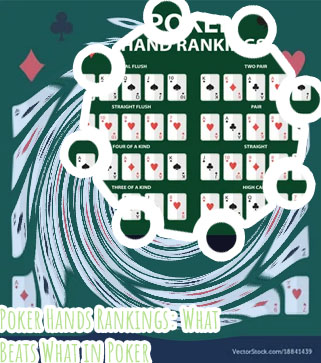Interested in mastering traditional poker and taking your game to the next level? Check out these 4 articles that offer valuable tips, strategies, and insights to help improve your skills and increase your chances of winning big at the poker table.
10 Essential Tips for Winning at Traditional Poker

Poker is a game of skill, strategy, and psychology, and mastering these aspects is essential for consistent success at the tables. Whether you're a beginner or a seasoned player, there are key tips that can help improve your game and increase your chances of winning.
One important tip is to pay close attention to your opponents' betting patterns and body language. By observing how they wager in different situations and how they react physically to certain hands, you can gain valuable insights into the strength of their holdings. This information can help you make more informed decisions and outplay your opponents.
Another crucial tip is to manage your bankroll wisely. Setting a budget for each session and sticking to it can help prevent costly mistakes and tilt-induced losses. Additionally, knowing when to walk away from the table and take a break is key to maintaining a clear mind and making sound decisions.
Practical Use Case: John, a poker player who consistently applied these tips, found himself in a tough spot with a mediocre hand against a tough opponent. By carefully observing his opponent's betting patterns, John picked up on a subtle tell and correctly deduced that his opponent was bluffing. With this information, John confidently made a big call and won a significant pot, boosting his confidence and bankroll in the process.
The Importance of Position in Traditional Poker

Position in traditional poker is a crucial aspect that can often determine the outcome of a hand. In poker, position refers to where a player is sitting at the table in relation to the dealer button. Being in a good position means that you have more information about what your opponents are doing, as you get to act after them. This gives you a strategic advantage in the game, allowing you to make more informed decisions.
One of the key benefits of having a good position in poker is that it allows you to control the size of the pot. When you are in a late position, you can see how other players are betting before you, giving you the opportunity to adjust your bet size accordingly. This can help you maximize your winnings and minimize your losses in the long run.
Furthermore, having a good position in poker also gives you more bluffing opportunities. When you are in a late position, you can take advantage of your opponents' weaknesses and make well-timed bluffs that can help you win pots even when you have a weak hand.
In order to fully grasp the importance of position in traditional poker, players should consider studying the concept of the "power of the button" and how it can affect their overall strategy. Additionally, understanding the dynamics of table position and how it can
Mastering the Art of Bluffing in Traditional Poker
<a href"/">Home
Mastering the art of bluffing requires a combination of skill, strategy, and intuition.Bankroll Management Strategies for Traditional Poker Players
Bankroll management is a critical aspect of success for traditional poker players. Without a solid strategy in place, even the most skilled players can find themselves facing financial ruin. By following a few key principles, players can ensure that they are able to weather the inevitable ups and downs that come with the game.
One of the most important aspects of bankroll management is setting aside a specific amount of money specifically for poker playing. This bankroll should be separate from other finances and should only be used for poker-related expenses. By keeping a strict budget, players can avoid the temptation to chase losses by dipping into other funds.
Additionally, players should only risk a small portion of their bankroll on any single game or tournament. A common rule of thumb is to never risk more than 5% of your bankroll on any one hand. By following this guideline, players can mitigate the risk of ruin during a particularly bad run of luck.
Furthermore, players should be prepared to move down in stakes if their bankroll dwindles. It can be tempting to try to quickly recoup losses by playing at higher stakes, but this can often lead to even bigger losses. By being disciplined and adjusting stakes as necessary, players can ensure that they are able to stay in the game for the long haul.

